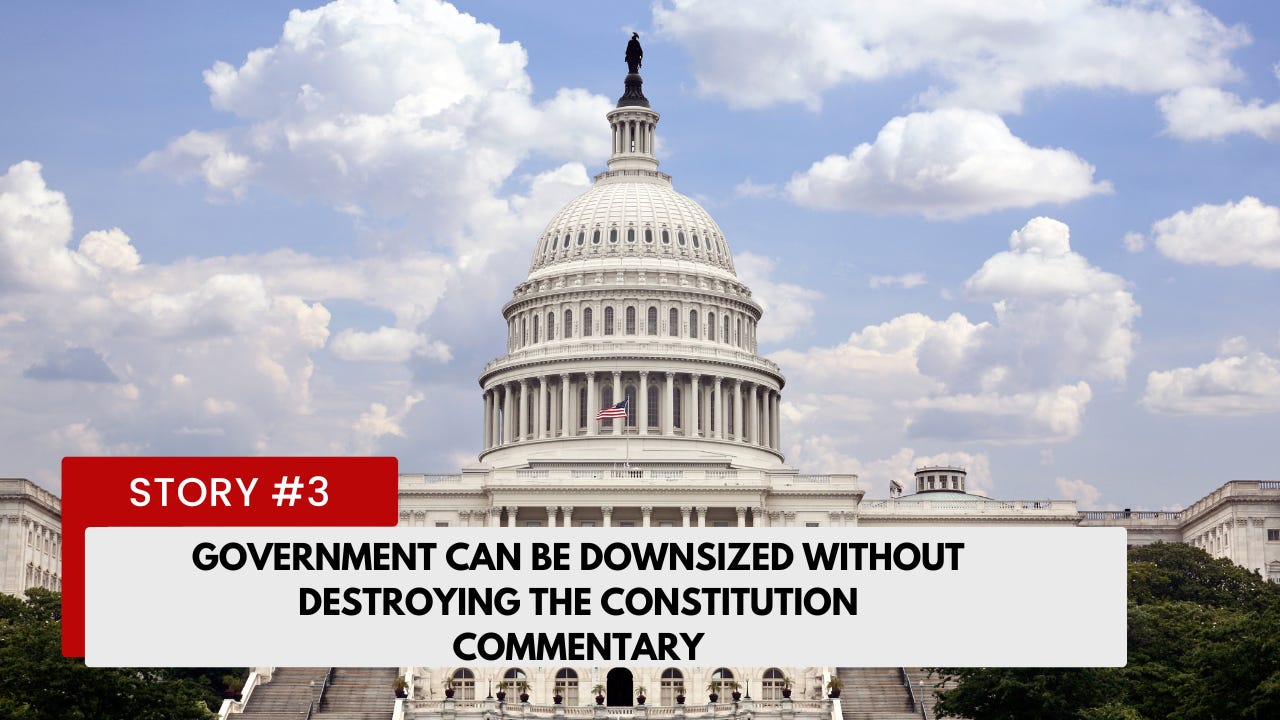This email is free Monday through Friday! I also produce special investigations and shows on Thursday, Friday, and Sunday.
I left a high-paying media job to go independent, and I can’t do it without your support.
Paid subscriptions are just $6/month and keep this work alive. Cancel anytime. Click the red subscribe button to join!


LANSING, Mich - Gov. Gretchen Whitmer posted on social media on Feb. 2 her concern that Michigan residents face higher costs. But many of her policies have imposed their own costs, experts say.
The governor wrote that Michiganders should be able to build a good life for themselves and their families. “That means keeping more of your hard-earned money, lowering costs on essentials, and ensuring opportunity isn't out of reach for anyone” the governor said.
“Perhaps she could be more concerned about what she can do about actual price increases that Michigan families are already facing,” said Theodore Bolema, senior editor at the Mercatus Center, in an email to Michigan Capitol Confidential.
Michigan has the highest electricity in the region, according to Bolema, who is a member of the Board of Scholars at the Mackinac Center for Public Policy. Click here to read more.

LOS ANGELES, CALIF - An unexpected data wipe from the pet microchip company Save This Life has pet owners without a crucial safety net, making it impossible for lost pets to be identified by owner contact information if they go missing, CNN reports.
Despite the database disappearance, veterinarians said that the microchips themselves remain functional. However, without access to registration records, scanning a missing pet’s chip will no longer reveal the owner’s information.
"From my understanding, it was pretty abrupt," Dr. Mike Grace of Flying Cloud Animal Hospital told local station WCCO.
Pet owners who used Save This Life microchips are now urged to take action.
First, they should obtain their pet’s microchip number by contacting the clinic or veterinarian that implanted it. From there, they must re-register the chip with another service, such as FreePetChipRegistry.com, which offers free registration.
“That number's associated with your contact information so you just need to re-register that chip with another company," Grace told the news outlet. Click here to read more.


WASHINGTON D.C. - Even a somewhat informed observer might wonder why President Donald Trump and the Republicans, who control all three branches of government and both houses of Congress, would need to rely on executive orders of questionable legality and constitutionality to finally accomplish the laudable goal of reducing the size of government as a percentage of GDP – which they have been rhetorically championing for decades but never seem to achieve.
For example, abolishing the Department of Education, which Republicans have long advocated, and at least trimming back the U.S. Agency for International Development need to be effectuated. However, in a republic, ends do not justify the means; following constitutional processes is paramount and should be easy given Republican control of all branches of government. Thus, that observer could and should conclude that the Trump administration is using questionable executive orders to realize these objectives, because its main goal, as was George W. Bush administration’s previously, is to dramatically expand executive power.
The most dramatic attempt to tip the balance of power among the branches of government is the Trump administration’s attempt to freeze government grants and contracts to make sure they complied with President Trump’s priorities. Click here to read more.

THE DEPARTMENT OF JUSTICE – U.S. Attorney General Pam Bondi vowed on Wednesday to prosecute any FBI agents, or other members of the government, who leak information on U.S. Immigration and Customs Enforcement (ICE) raids.
White House Border Czar Tom Homan suggested on Monday that someone within the FBI may be leaking information on the raids, potentially putting officers’ lives at risk. The Daily Caller asked Bondi at her first press conference what the consequences would be for those within the FBI if they were ultimately caught leaking information about the raids.
“Has the DOJ gotten any closer to determining if these leaks are coming from within the FBI? And what will the consequences be if they can identify the leakers from the FBI?” the Daily Caller asked.
“The great men and women in law enforcement standing behind me today, they deserve, they must be protected, and anytime anyone leaks or tips off anything regarding a pending investigation that jeopardizes lives. You’re telling a bad guy what’s about to happen. It could jeopardize the lives of all the men and women in law enforcement,” Bondi began.
“We will not stand for it. We will find you. We’re going to investigate it, no matter what agency it came from. We don’t know for certain. We have an open investigation, so I can’t talk about it in detail, but we will do everything in our power to hold you accountable and it is a crime, and you will be prosecuted when we find you,” she finished. Click here to read more.

LANSING, Mich - Gov. Gretchen Whitmer’s executive budget proposal would cut funding for schools serving some of the state’s neediest students. It would also fund preschool for all the state’s four-year-olds even though many parents have no interest in enrolling their children. Worse still, the budget fails to fix the dire state of Michigan’s K-12 education system.
The governor’s $21.2 billion School Aid Fund proposal for fiscal year 2026 would give districts a 4.1% increase to the foundation allowance, which is the state’s per-pupil minimum funding guarantee for every public school. The 2025 budget maintains the $9,608 allocation from the previous year, while the 2026 proposal would raise it to $10,000 per student. This would help narrow the funding gap between districts at opposite ends of the funding spectrum.
At the same time, the 2026 proposal would increase some funding disparities between conventional district schools and charter schools. Last year, the Legislature lowered the amount districts are required to contribute to the state’s retirement system for school employees, a decision that boosted districts’ funding by about $374 per student, on average. Charter schools, most of which do not contribute to the retirement system, received a one-time appropriation of $375 per student to offer comparable treatment. Click here to read more.




















